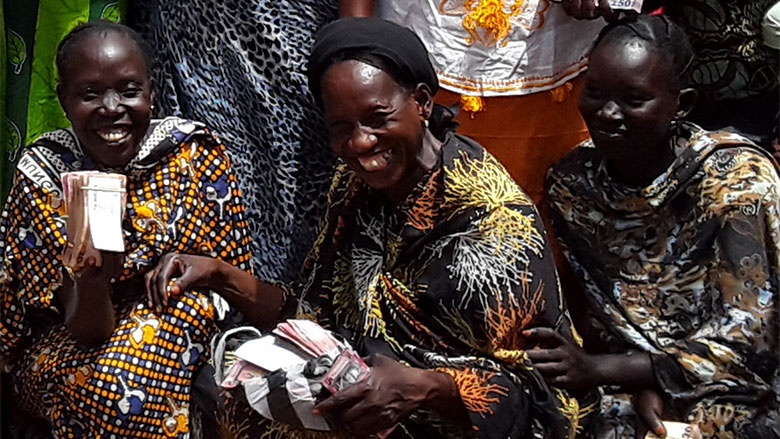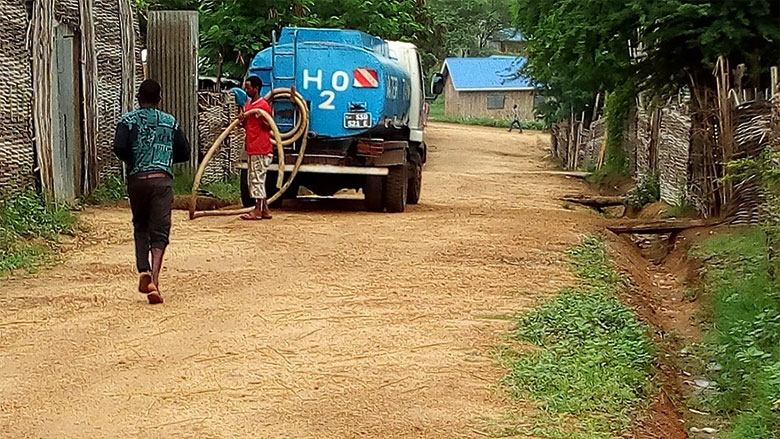Few countries in Africa have been through as rough a patch recently as South Sudan. But that does not mean that it is impossible to provide it with at least some forms of long lasting support. The public works component of the Safety Net and Skills Development Project (SNSDP) is operational in the city of Juba, for example, and is benefitting 6,000 households (or about 50,000 individuals)—over 70 percent of them female-headed. Of all the individuals supported, about 30 percent are internally displaced persons (IDPs).
The longer-term aspect of the project is to establish the building blocks of a national social protection system, to be used to help the South Sudanese government and its partners design—and implement—social protection interventions in the future.
Despite the uncertain political and very difficult economic environment in South Sudan, SNSDP has succeeded in getting key results because of the high degree of commitment of government counterparts, and dedicated, innovative efforts by the World Bank team.
The results of the public works program include:
- Close to $1.6 million transferred as income for 652,049 total person days worked, to about 85,000 individuals from 10,865 households.
- Many of the transfers took place after the resumption of activities in June 2017, amid a rapid scaling up in response to needs following conflict. Over 80 percent of the total wages has been transferred for 442,037 person days worked since, benefitting about 26,000 new individuals in 2,513 new beneficiary households. This is in addition to the on-going support provided to the old households as well.
- Community assets: 175 activities in road clearance and maintenance, the construction of drainage structures, and routine public space clearance have been identified as priorities by communities. Of these, 146 activities have been completed and 62 are underway.
Cash transfers have had a positive impact on the lives of the beneficiaries, including increased purchasing power for basic necessities, such as food, clothes, and medicines, and home improvements. They have also allowed households to pay children’s school fees and uniforms, contributing to improved results in education.
“People’s lives are improving, they have nutritious meals to eat, and their human capital is being improved through continued investment in health and education,” says Dena Ringold, Practice Manager of the Bank’s Social Protection and Jobs Global Practice.
Improvements in community assets have increased access to services and mobility due to better road networks and reduced crime. They have also empowered beneficiaries to engage in small-scale income generating activities, such as setting up tea kiosks, selling vegetables, and so on.
“These public works are helping to build assets that will be used even after the completion of the project,” says Sahr Kpundeh, World Bank Country Manager for South Sudan. “Infrastructure like feeder roads is easing access to markets, schools, and health facilities.”
Most importantly, public engagement in public works has provided a platform for greater interaction and social dialogue in Juba, contributing to local-level peace building and stabilization by creating a sense of unity and social cohesion among diverse ethnic groups. “This project has united us,” says one participant. “We feel like the sons and daughters of one person.”



